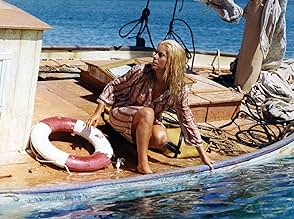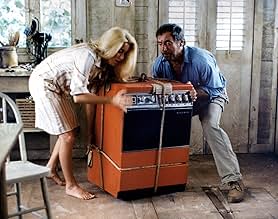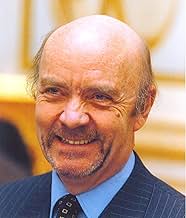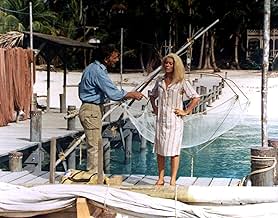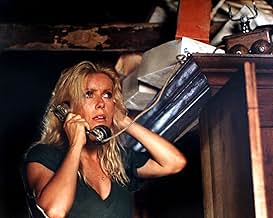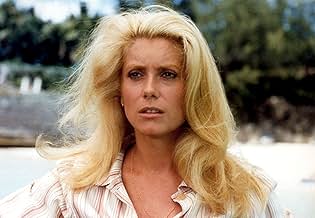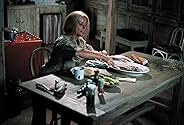Jean-Paul Rappeneau made an auspicious directorial debut in 1965 with 'La Vie de Chateau', a delightfully comic view of the Nazi occupation which made it a forerunner to films such as 'La Grande Vadrouille'. Fast forward twenty five years and he directed the definitive version of 'Cyrano de Bergerac'. In the interim he directed only three films, all of them comedies where the rather juvenile humour of his first film has been carried to extremes in which frantic is deemed funny and featuring silly slapstick, hysteria, numerous punch-ups and rat-a-tat delivery.
Two of these starred the charismatic Yves Montand and this is undoubtedly the better of the two. He is here partnered by Catherine Deneuve who had previously worked with Rappeneau on 'La Vie de Chateau'. Her presence guarantees that despite the frenetic goings on Romance will blossom and l'Amour conquer all. Montand's scruffy, unshaven Robinson Crusoe character whose peaceful island existence is shattered by a wilful, strong-minded and sexy female would seem a nod to Cary Grant in 'Father Goose' but whereas Grant and his girl Friday Leslie Caron are threatened by the Japanese, here Deneuve is pursued by a jilted fiancé and Montand is being tracked by his estranged wife. The fiancé is portrayed as a one-dimensional, hot-headed Italian caricature whose solution to every problem is to hit someone whereas the wife is a powerful business tycoon whose motive seems more financial than emotional and who is played by the classy Dana Wynter.
The film is evidently inspired by Hollywood films of the 'screwball' variety and the talented Mlle Deneuve acquits herself very well in an atypical role. Based upon the principle of 'horses for courses' it is best not to compare her with the likes of Carole Lombard and Jean Arthur who excelled in this particular genre. Her chemistry with Montand is palpable as it is in their only other film together, 'Les Choix des Armes.' No doubt with a view to the box office there is an utterly gratuitous shot of her breasts but of course, who's complaining?
Monsieur Montand is as engaging and beguiling in this as he was to be in Rappeneau's next film and in Claude Sautet's seldom seen 'Garcon'. It is a pity that he was not granted the opportunity to do more comedy whilst it is probably kinder to pass over in silence his appearance in 'Let's make love' which calls to mind the phrase 'a fish out of water'.

